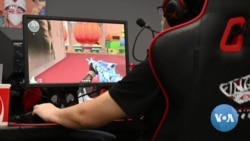TikTok’s short-lived shutdown in the United States has opened a wider debate in other countries regarding access to popular social media platforms by children.
TikTok went dark temporarily Sunday in the U.S. after a new law banning it went into effect. The law required TikTok’s Chinese-owned parent company ByteDance to sell the app’s U.S. operation due to national security concerns over its ties to Beijing.
After his inauguration on Monday, President Donald Trump signed an executive order halting the ban for 75 days, giving ByteDance additional time to find a buyer.
The order provides relief to the app’s 170 million American users, many of them young adults. More than 60% of teenagers in the U.S. ages 13 to 17 use TikTok, with most of them accessing the platform daily, according to data from the Pew Research Center.
The U.S. is not the only country looking to regulate social media and other platforms such as online gaming. While the reasons behind the restrictions vary, a growing number of countries already regulate technology or are proposing legislation to restrict its use.
In Australia, a high-profile social media ban for young adults under the age of 16 will take effect at the end of the year, prohibiting them from creating accounts on TikTok, Facebook, Instagram, X and Snapchat. The government said the ban was a necessary measure to protect children.
“Social media is doing harm to our kids, and I'm calling time on it," Australian Prime Minister Anthony Albanese told reporters last November.
Websites like YouTube that do not require an account to view content will likely be excluded from the ban.
The Australian government said the onus will be on the social media companies to “take reasonable steps” to prevent children under 16 from creating accounts on their platforms. Companies that do not comply could face fines of more than $30 million. Details of how the law will be enforced remain scarce, with age verification technologies currently being trialed.
Some young Australian users of the platforms remain skeptical about how effective a ban will be.
“I think people will manage to find ways around it, maybe by lying about their age,” 15-year-old Theodore Cagé told VOA.
While Cagé concedes that social media can be a “big distraction from school,” he is against a blanket ban, favoring more measured approaches such as limiting screen time or blocking specific content.
“I reckon it definitely should be more targeted, not just a total ban on everything, because there's a lot of good stuff out there. It's not all bad,” he said.
The impending ban has also raised concerns that some children will be left isolated.
“Social media serves as a lifeline for those youth who do not have supportive homes or local environments. They can find supportive communities on social media,” Lisa Given, a professor of information sciences at RMIT University in Melbourne, told VOA.
Australia’s ban will be closely watched, especially by countries in Asia that are considering their own restrictions for young users.
Indonesia’s communications minister said the Southeast Asian nation is planning a minimum age for social media use and discussed plans last week with President Prabowo Subianto.
In neighboring Singapore, teenagers under 18 moved to a more restrictive Teen Accounts on Instagram starting Jan. 21.
The city-state also issued guidelines in schools to limit screen time for children. Starting March 31, app stores in Singapore will block children under 12 from downloading apps, including TikTok and Instagram.
But in the Southeast Asian financial hub, which prides itself on technological advancements and connectivity, social media still plays a significant role in the daily lives of young people.
Platforms like Snapchat and Instagram “are pretty important for engaging in new relationships or finding new friendships,” 17-year-old Pablo Lane of Singapore told VOA. “It [social media] has had big benefits for me, just broadening the scope of people I can contact.”
China has gone further than other countries in Asia to control children’s access to online networks. In 2021, Beijing introduced new measures restricting children under 18 to just three hours a week.
And in late 2024, new guidelines from China’s cybersecurity regulator called for mobile devices to be equipped with a “minors mode” that would limit screen time for children under 18, including an overnight curfew.
The setting, which parents can turn off, restricts 16- to 18-year-olds to two hours of phone use a day, with 8- to 16-year-olds allowed just one hour.
Jeremy Daum, a senior fellow at Yale Law School’s Paul Tsai China Center, said China is also focused on protecting children from harmful content online rather than implementing blanket bans.
“They're really trying, from a number of different angles, to make a safe web for kids,” Daum told VOA.
Questions remain over whether China’s model could apply elsewhere.







